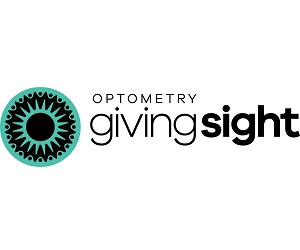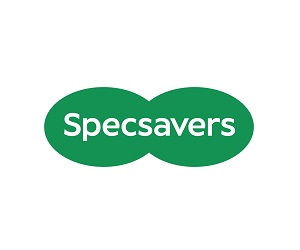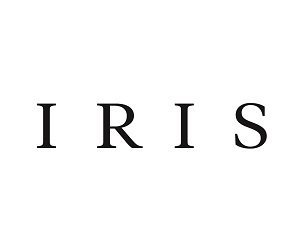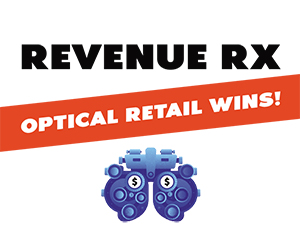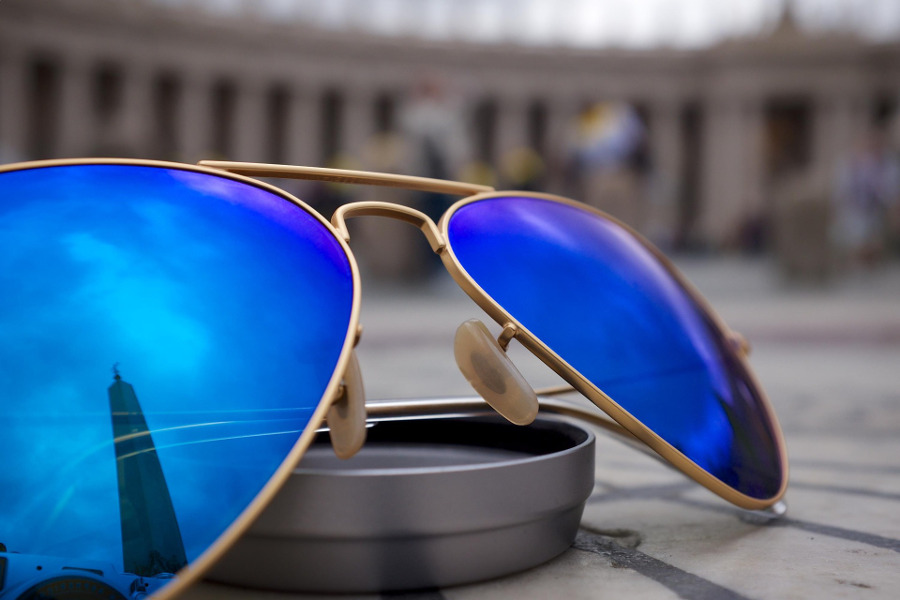
Prescription sunwear protects patients’ eyes from ultra-violet radiation and blue light, and increases their comfort and visual quality. And from a practice profitability standpoint, selling Rx sun builds revenues.
With so much to be gained by selling Rx sun, it’s surprising that independent optical shops don’t sell even more. Some 6.15 million pairs of Rx sunglass lenses were sold in the U.S. in 2016, increasing 1.2-1.5 percent yearly, according to The Vision Council. This number represents 7.4 percent of all Rx lenses sold. Reports show that roughly 43 percent of those lenses were sold through independent ECPs.
So where does the other 57 percent choose to buy their Rx sunglasses? Not from your independent practice!
If you and your staff don’t have the know-how to make those sales, the dollars walk out the door to online retailers, to a corporate-owned chain, or to a specialty sunwear shop.
Setting off a particular pair of sunglasses can draw attention to an exciting buying opportunity for patients browsing the shop.
Know the Many Options Available to Your Patients
Polarized solid, or gradient, are the first two choices the patient has. From there, you have many photochromic variations to choose from, including lenses in grey, brown or green, Transitions Vantage (photochromic and polarized) for indoor and outdoor in one pair, and dozens of colors in mirror coatings, blue-guard tint, back-lens AR, racing red tint for mountain biking, and high-contrast amber for golfing.
Talk Rx Sun in the Exam Room
If Rx sunglasses seem to be a difficult sell to your patients, maybe the presentation is coming too late in the conversation, when they are ready to go home.
The solution: Make prescription sunwear a key part of your exam-room conversation with all of your patients requiring vision correction, including presbyopes.
For example, you might say: “Emily, in addition to a pair of glasses for the home and office, I’m prescribing a pair of prescription sunglasses. Your eyes will be more comfortable, and you’ll be able to see much better when doing anything outside, from driving, to walking your dog to doing the activities we talked about, like hiking and biking. Since you also sometimes go boating, I’m also prescribing lenses with polarization, which cuts out the glare from the water, so you can see better and more comfortably. We’re learning more and more about the sun’s harmful effects on the eyes, so it’s important that you wear sunglasses whenever outdoors. Since you also wear glasses, it makes sense to have a pair of prescription sunglasses, so you don’t have to worry about only being able to wear your sunglasses if you have your contact lenses in.”
In the exam room, the OD can also look over the patient’s current RX sunwear and make suggestions about updating the fit, tint, or mentioning the new gradient polarized lenses now available.
Having the OD’s own prescription sunglasses on hand to show off a new style of polarized lens color, or the lightweight styles now available, makes the hand off to dispensing optician much easier.

Have Staff Ask Patients to Bring All Eyewear to Appointment
I can’t stress enough that dialog about the need for Rx sunwear needs should be addressed as early as possible in your office’s interaction with the patient.
Consider planting the seeds for the conversation during the call for an exam appointment. Staff can suggest the patient bring all of their recent eyeglasses, and sunglasses to be cleaned, adjusted and evaluated during their exam. If the majority of your patients now make appointments online, you can program a pop-up bubble to appear with the same message of bringing along all eyewear, including sunglasses, to the appointment, or you can make the request on one of the online forms the patient is asked to fill out.
Placing sunwear in a display case like this one sends the message that this is a special selection of products.
Train Opticians to Show Sunglasses at Same Time as Frame Options
Sunglasses tend to be an afterthought in too many frame sales, when in reality, they should be presented along with frames for new glasses.
While the patient has only asked to be shown frame options, every optician can casually include one or two pairs of sunglasses. Your patients will appreciate the thought your optical puts into also offering them sunglass options.
Your optician might say: “I’d love to see this on you! We just got these new Christian Dior sunglasses in, and I need someone to model this pair to see how it feels and looks. May I see it on you?”
Promote with Special Offers
Sunglasses are most often a patient’s second pair of Rx glasses, so a discount can help to encourage sales. For example: 25 percent off the frame, or 15 percent off the frame and lenses, depending on your profit margin. Making the discount on second pair Rx sunglasses as attractive as possible keeps those sun Rx dollars in your practice’s pocket.
Don’t skimp on frame board space for sunwear. If you feature it prominently, you give more patients the chance to notice it, and make a purchase.
Make Sunwear Merchandise Easily Accessible with Opticians On Hand
Keep your sunglasses out front and easy to try on. Having an optician easily available, and sunwear easy to touch and feel, makes sales more fluid than keeping sunglasses locked away in display cases. Too many locked cabinets make patients feel they aren’t trusted. Being sure you’re properly staffed, and that your staff is out front, keeps theft down and your patients buying. While security today is more important than ever, personal service is paramount.
Greeting every shopper within a few moments of entering your business keeps theft down, and upfront personal care and knowledgeable experts on hand to increase sales.
Avoid the help-yourself atmosphere. Your place of business is not a self-service discount shop. Offering quality sunglasses, and displaying them in such a way that shows their worth, represents how you care for each patient. Prescription sunwear is a premium product that improves patients’ lives.

COLLEEN HANNEGAN ABOC CPO
is a licensed optician, and owner of Spirited Business Advisor, a consultancy that works with small businesses, including independent eyecare practices, on how best to serve customers and generate profitability. To contact her: colleenhannegan@yahoo.com


















